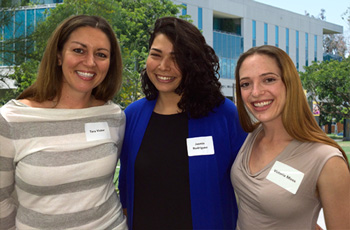Faculty Legacy Fund
Latest News
Promoting Faculty Success
Our Belief
It is the belief of CSU Dominguez Hills Emeritus Faculty Association that the foundation of all great universities lies with a strong faculty base maintained through a rigorous system of academic peer review and tenure. The Faculty Legacy Fund has been created to help the next generation of tenured and tenure-track faculty at Dominguez Hills meet those demanding standards.
Investing in Faculty
Administered by the Emeritus Faculty Association, the Faculty Legacy Fund awards provide financial assistance for current faculty members to encourage and support their professional development in areas such as teaching, research, conference presentations, lab work, and other scholarly and creative endeavors. Awards are open to tenure-track and tenured faculty at Dominguez Hills. Preference is given to non-tenured, tenure-track faculty.
Submission Deadline is 5:00 pm, Monday, February 12, 2024
Drs. Michael Spagna, Provost and Vice President for Academic Affairs and Sheree M. Schrager, Dean, Graduate Studies and Research are pleased to announce the CSU Dominguez Hills Emeritus Faculty Association (EFA) is continuing to offer Faculty Legacy Fund Awards, an on-campus professional development grant program for current tenure-track and tenured faculty members. This award program has been created to provide financial assistance to encourage and support professional development in the areas of teaching, research and creative activity. Awards are open to all tenure-track and tenured faculty, although preference is given to non-tenured, tenure-track faculty. Further preference will be given to applications that benefit students as researchers, research assistants, or students in the classroom.

The EFA expects to be able to award grants for a maximum of $6,000 each. Requests may be submitted for any amount up to that maximum. The grants are for use during the 2024-2025 academic year, but awardees may begin to access their awards in the summer of 2024.
The deadline for submitting proposals was Monday, February 12, 2024. Announcement of the recipients of the awards will be made during the Spring 2024 semester. The awardees will be honored at the EFA Spring Zoom Meeting in late May.
We strongly encourage you to apply. If you have any questions about the Faculty Legacy Fund Awards, feel free to contact John Wilkins.